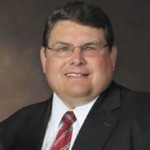While real estate remains in the doldrums, many older individuals own homes that are still worth plenty. Some of these folks may be “house rich” but “cash poor.” Taking out a reverse mortgage could give an older homeowner access to needed cash without selling the property. In fact, many older homeowners may not qualify for a conventional “forward” home equity mortgage or line of credit because they lack the requisite income. For them, a reverse mortgage may be the only way to convert home equity into cash without selling. You can receive reverse mortgage proceeds as a lump sum, in installments over a period of months or years, or as line-of-credit withdrawals when you need cash. This sounds great, but what are the tax implications?
The first major tax issue is when and if you can deduct the reverse mortgage interest. The first $100,000 of the loan balance will usually qualify as home equity debt under our beloved Internal Revenue Code, and you can generally claim an itemized deduction for the interest up to that amount. However, no write-off is allowed under the alternative minimum tax rules unless you spend the loan proceeds on improving your home. In any case, you can’t deduct any interest until it’s actually paid in cash (as opposed to just being added to the loan balance). You may be in a far better place by the time your reverse mortgage and all the accumulated interest gets paid off, so I would not give much weight to the interest deduction.
The second major tax issue is relevant if selling your home would result in a gain that dwarfs what you could exclude under the tax rules ($250,000 for singles, $500,000 for married joint-filing couples). If taking out a reverse mortgage allows you to hang onto your valuable property until either you or your spouse dies, your heirs might be entitled to a big tax basis step-up that could reduce or eliminate any taxable gain when the property is finally sold. In some cases, the tax savings could be far higher than all the costs associated with the reverse mortgage. Talk to your tax pro if you think this consideration applies to you.
Greg Sant is a Reverse Mortgage Specialist with Bank of America and can be reached locally at 435.773.0357.
